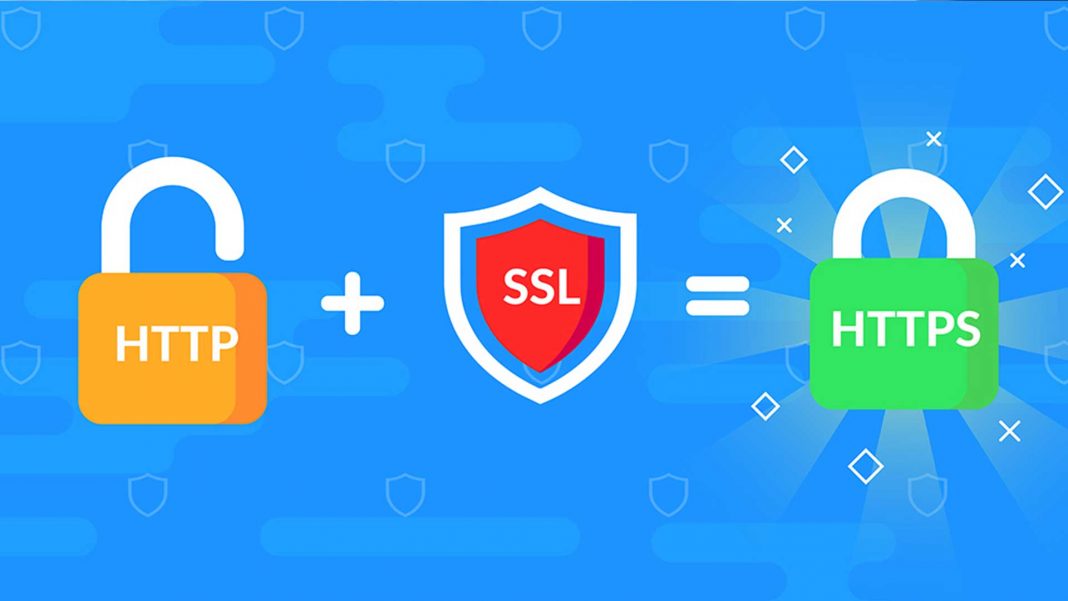It’s time to secure your site with SSL certificate
The web can be an awe-inspiring environment to do all that you love. You can get tons of information, watch movies, download music, purchase items and chat with anyone from across the globe. But good things also happen to attract the attention of bad guys, and the web is not an exception. Hackers are usually lurking in the shadows and would like nothing better than to steal your username, usernames, passwords, social security numbers, and other sensitive information. As a website owner, securing your website should always be a top priority because if use if users are not guaranteed of their safety, they’ll simply move on to the next site. One of the ways of securing your site is by installing an SSL certificate.
What is an SSL certificate?

An SSL certificate is a digital online certificate that safeguards information that is sent from your web browser to a web server. It does this using some encryption algorithms that deter hackers from eavesdropping or snooping on the data sent to a website. An SSL certificate is purchased by a website owner from a certificate owner that does the work of confirming if the site is really yours and later encrypts all the data flowing from users’ browsers to the website’s server. A small symbol of a padlock, usually green, at the URL bar is indicative of a site that is encrypted using an SSL certificate. This implies that any information provided to your website will be encrypted and hackers will have no chance of stealing it.
Benefits of installing an SSL certificate
1. For encrypting your data
The primary goal of an SSL certificate is to provide your customers with a safe and secure environment on your site by encrypting client-server communication. When you install an SSL certificate on your website, data sent or exchanged between a user’s browser and your site is encrypted. Data is converted into a cryptic undecipherable format using SSL protocol short for Secure Socket Layer. The encryption technology prevents hackers from eavesdropping on your communication with the website. This is particularly crucial when submitting sensitive data such as usernames, passwords, credit & debit card information and so on which can pose an enormous risk if leaked to hackers and non-authorized users.
2. For Improving customer trust
It’s a no-brainer that any user would want to visit safe and trusted sites and keep a distance from untrusted sites. Apart from securing your data, an SSL certificate instills trust in users. There are visual cues that users are on the lookout for such as the green padlock symbol at the URL bar with the company’s name. When clicked upon, a user will be able to confirm details such as the validity of the SSL certificate, and the website that the SSL certificate has been issued to which is enough proof that the site running the SSL certificate is legitimate. In a nutshell, it validates that a company or entity is who they claim they are. This infuses confidence and users are more inclined to make transactions on your site.
3. For PCI DSS compliance
PCI, short for Payment Card Industry, is an infosec industry standard for companies that handle credit card payments. A small but crucial part of PCI compliance demands the installation of SSL certificates on company websites to safeguard users’ sensitive data such as credit card information which is sent to the web servers hosting the site.
4. For improved SEO ranking
Do you want your site to appear on the first page of Google search results? Get your site an SSL certificate. Of course, it takes a lot more to rank on the first page of Google results, but from 2014 onwards, Google started giving priority to sites that have been encrypted with an SSL certificate and usually begin with HTTPS protocol, short for Hyper Text Transfer Protocol Secure. SEO is quite wide and ranking algorithms keep changing from year to year but having your site secured will definitely be a huge plus for your site when it comes to SEO ranking compared to unsecured sites.
Why is Google forcing all websites to have SSL certificates?
From 2017 onwards, Google started flagging websites that were not secured using an SSL / TLS certificate by displaying an ominous “Not secure” message at the beginning of the URL bar. The intention was quite obvious: to warn users to steer clear of such sites lest their private data got compromised when interacting with them. At the risk of losing potential and existing users, website owners were left with no option but to step up and secure their sites. Who knows what Google will do next to unsecured sites? Their next move can only be left to our imagination but what’s certain is that as time goes by, unsecured sites will continue being relegated to the bottom.
Conclusion
If you own a website in 2020, securing your site with an SSL certificate is not an option. Unlike a decade ago, having one is no longer considered a luxury. Whether it’s a simple blog or a busy online store enjoying massive traffic, encrypting your site with an SSL/TLS certificate is a top priority for any security-minded user, which we should all aspire in light of an evolving threat landscape where hackers are lurking waiting to steal users’ private data.
Now that you have acquainted yourself with the benefits of having an SSL certificate installed on your site, it’s time to take the next step and acquire one to be on the right side of things.
At Net Onboard we ensure that you are not left behind in securing your site and creating trust with your online customers. We offer a diverse range of Comodo SSL certificates with the latest encryption and validation which takes place within a few hours. You can secure a single domain or even subdomains to ensure that your site is fully secure. So, what are you waiting for? Get your SSL certificate now!























